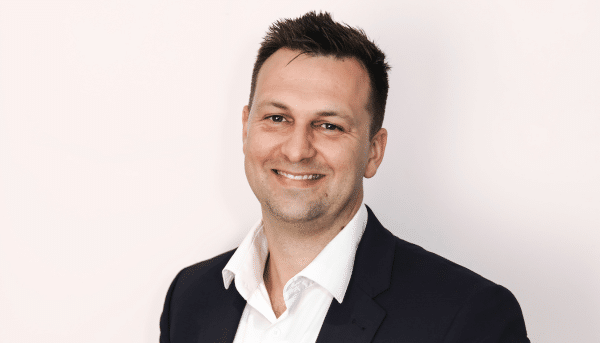How to Reignite Your Decarbonisation and Circular Economy Journey
Using the Edge Impact Circular Economy, Procurement, and Scope 3 (CEP3) Rapid Diagnostic Tool
Article Written by Christian Keel, Head of Circular Economy at Edge Impact. This article introduces the exciting new Edge Impact (CEP3) Rapid Diagnostic Tool. As we transition to a more sustainable future, navigating the complex landscape of decarbonisation and circular economy is of paramount importance. This tool, designed by our team of experts, is here to empower you on this journey.
Navigating a Multifaceted Transition
The global shift towards a sustainable, circular economy that operates within planetary boundaries presents a multifaceted challenge. New technical sustainability disciplines like circular economy, sustainability procurement, and decarbonisation have emerged to support this transition. However, the marketing and deployment of these disciplines, whilst falling under the sustainability umbrella, can sometimes create a “silo effect” that hinders progress.
Accelerating Transition in the Private Sector
In the private sector, we observe a two-speed transition: some organisations are ready for action, while others need straightforward and pragmatic guidance on how to begin their sustainability journey. Similarly, the public sector is willing to transition, but how can they prioritise and focus their efforts on the highest value activities?
Rapid Sustainability Diagnosis
To rapidly diagnose sustainability opportunities and craft a high-impact roadmap, the academic approach involves conducting a thorough assessment of every aspect of your organisation, including materiality assessments, and the development of a comprehensive sustainability strategy. Leaders in various sectors are adopting this method; however, it can be argued that they often do not sufficiently consider scope 3 emissions and circular economy opportunities.
The circular economy is still a relatively nascent concept in the private sector, and scope 3 emissions, once largely overlooked, are now firmly back in the spotlight with the updated climate reporting guidelines.
Bridging Circular Economy and Decarbonisation
Circular economy and decarbonisation share the common goal of reducing environmental impact and promoting sustainability, but too frequently these critical transitions are decoupled.
The upcoming disclosure standards from the International Sustainability Standards Board, coupled with regulations such as the SEC’s Climate-Related Disclosure regulation, will necessitate that companies report their scope 3 emissions.
The new reporting requirements are a significant step towards enhancing transparency and accountability for the environmental impacts within organisations supply chains.
Transparency and Accountability in Reporting
While many organisations that produce annual sustainability or ESG reports are more proficient in Scope 1 and Scope 2 emission calculations, Scope 3 emissions pose a dual challenge: acquiring better supply chain data and improving supplier emissions performance.
Despite the initial daunting nature of this challenge, there are three straightforward steps organisations can take.
The Pragmatic Approach to Sustainability
A pragmatic rapid assessment must consider circular economy and scope 3 elements to optimise outcomes related to greenhouse gas emissions, material efficiency, waste reduction, and broader environmental impact. The goal is establishing a closed-loop system to reduce energy-intensive processes in extraction, transportation, and manufacturing, thus bolstering decarbonization efforts.
The Edge CEP3 Rapid Diagnostic Tool
The Edge CEP3 Rapid Diagnostic Tool harnesses best practices from ISO20400 Procurement, GHG Protocols Decarbonisation, and Circular Economy Principles to quickly assess opportunities within your organisation. It takes a practical approach that considers circular economy and decarbonisation in the context of supply chain and procurement.
Key Assessment Areas
This assessment focuses on several key areas, including:
- The Commitment: Evaluating your existing sustainability strategy and organisational sustainability maturity.
- The Fundamentals: Gaining clarity on drivers, impact, and priorities.
- The Footprint: Offering high-level guidance on impact areas based on high-risk/carbon intense materials or products, identifying opportunities and “quick wins”.
- The Policy & Strategy: Connecting key issues to enablers, processes, and gaps.
- The Reporting & Regulation: Preparing your organisation for future reporting, disclosure, and regulation.
- The Key Enablers: Identifying leverage points for implementing sustainability policies, strategies, or programs.
- The Procurement Process: Pinpointing opportunities to embed sustainability into the procurement process, including measurement.
Tailoring Sustainability for Your Organisation
Whether your organisation is just beginning its sustainability journey or already has a mature approach, this assessment ensures a well-rounded incorporation of critical elements of Circular Economy, Scope 3, and Procurement, providing practical and implementable next steps.
Contact us today for a free 45-minute consultation at Edge Impact Global.
Or get in touch with Christian directly at:
E: mailto:christian.keel@edgeimpact.com
P: +61 (0) 405 755 472
LinkedIn: Christian Keel
You can also hear Christian speak at the Circularity Conference, don’t miss his session, where The Edge Impact Circular Economy Assessment Framework will be introduced. Get your tickets today
-
Stay up to date with the latest news, industry insights and ReGen updates.
- SUBSCRIBE TO REGEN

